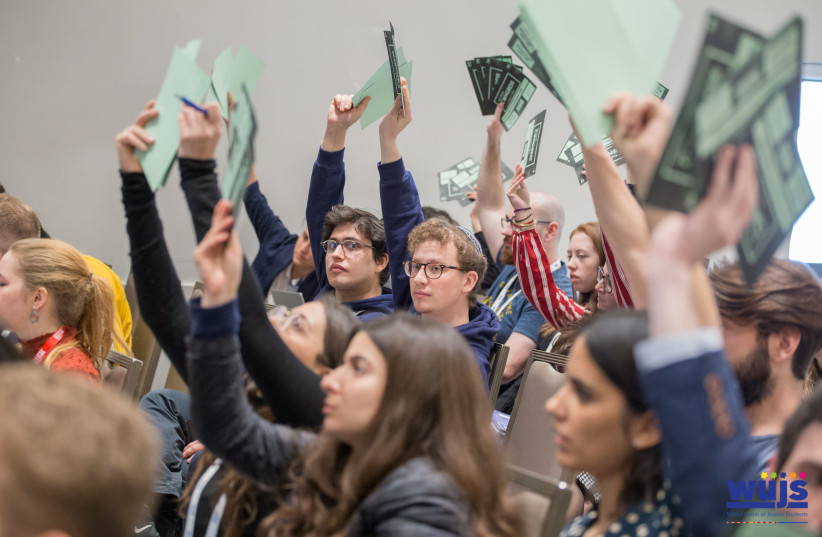Jewish women report encountering a greater degree of antisemitism than men, according to a recent report.
The findings come from a joint study from Ipsos and Jewish on Campus entitled, “Antisemitism on College Campuses.”
When asked if antisemitism is a threat to their university, nearly half (49%) of female Jewish students surveyed responded in the affirmative.
When asked the same question, male Jewish students were less likely to say the same. Specifically, 38% of male Jewish students responded in the net yes category. While this still represents a sizable proportion of the demographic, it constitutes a considerably smaller proportion of Jewish men than Jewish women.
Women report more antisemitism across the board
This Jewish male/female disparity in perceived antisemitism persisted across all questions presented on the matter.

After gauging the perceived threat level of antisemitism, the survey asked respondents about the prevalence of antisemitism in the various dimensions of their lives.
For instance, Jewish survey respondents were asked if antisemitism is prevalent in their community.
Here, a full third (33%) of female Jewish respondents said that it is. In comparison, only just over a fifth (22%) of male Jewish respondents said the same.
Next, respondents were asked if antisemitism is prevalent in their student body. While this time the gender-group difference was smaller, again the proportion of female respondents, who answered in the affirmative 35% of the time, was greater than the proportion of male respondents, who said yes 27% of the time.
Student respondents were also asked if antisemitism is prevalent in their administration and in their faculty. To this, male Jewish students said yes 12% and 13% of the time, respectively.
Continuing the trend, female Jewish students responded yes 18% percent of the time for both questions.
Finally, the respondents were asked if antisemitism is prevalent in their student government. One-fifth (20%) of female Jewish respondents said it is compared to 16% of male Jewish respondents who said the same.
The survey advances a couple of rationales for the gender-based discrepancy in perceived antisemitism.
One explanation, according to the study could be that “female Jewish students are more cognizant of antisemitism than male Jewish students due to their experiences with the intersection of sexism and antisemitism.”
Another possibility, the study notes, could be that there are situations which female Jewish students are assessing as antisemitic that male Jewish students are not.
